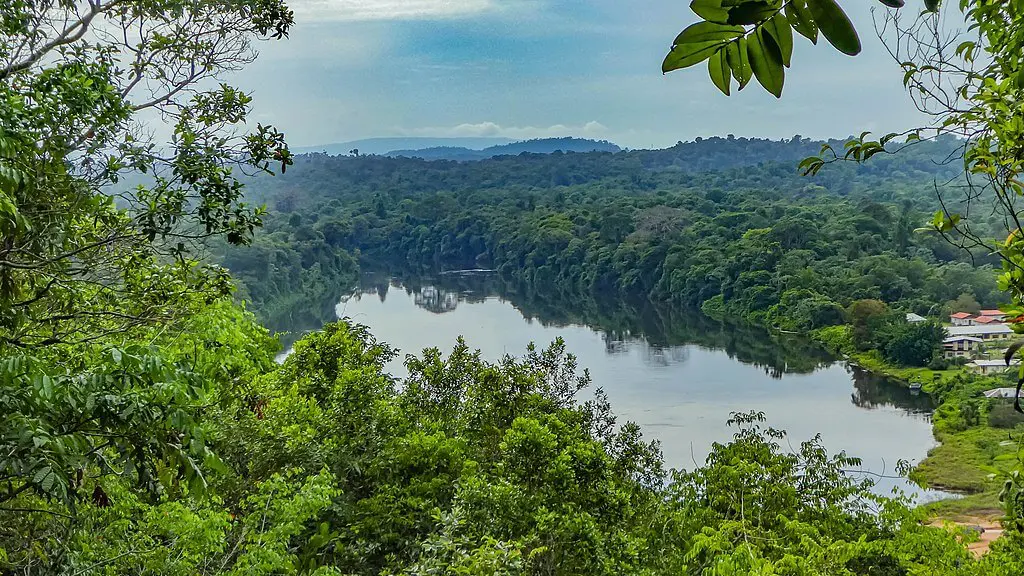PARAMARIBO, SURINAME – Despite being one of the most forested nations on Earth – 93% of its land is covered with rainforests – Suriname has not yet earned a cent from carbon credits. That striking reality framed the discussion at the “Carbon Markets and Opportunities for Suriname” panel at SEOGS 2025’s Executive Summit.
Speakers John Goedschalk, CEO, Climate Change Advisory Services; Minu Parahoe, Regional Director, Amazon Conservation Team Guianas; and Gina Griffith, Executive Director, Conservation International Suriname explored the barriers holding Suriname back from monetizing its natural carbon sink. The session was moderated by Rudolf Elias of EY Caribbean.
Suriname’s decision in 2009 to decline participation in Norway’s REDD+ (Reducing Emissions from Deforestation and Forest Degradation) initiative was highlighted as a missed opportunity that continues to echo today. “Guyana took the risk when things were still uncertain,” said John Goedschalk. “They started early, experimented, made mistakes and learned. That early commitment is why they’ve become a leader in the region.” In contrast, Suriname’s hesitation, partly due to concerns about forest sovereignty, meant forgoing tens of millions in potential investment and capacity building.
Legislative gaps remain a significant barrier. “We’re still having discussions on who owns the carbon credit,” Griffith noted. “If there’s no clarity, you cannot expect investors to step in. Legislation is one way to provide that clarity.” She pointed to issues like land rights, benefit-sharing models, and undefined ownership as deterrents for serious market engagement.
Parahoe emphasized that Suriname’s problem goes beyond legal infrastructure: “We’re struggling to decide who we want to be. Do we want to sell forest carbon? Do we want to conserve? Until we make that national decision, we won’t unlock the potential.”
A key market reality, discussed by all three panelists, is that standing forests, like Suriname’s, often fetch lower prices than reforestation projects. “It’s a perverse system,” Griffith said. “Countries that have deforested and are now planting again are rewarded more than those that conserved all along.”
She explained that without guarantees about permanence, buyers hesitate. “If there’s no assurance the forest will remain standing for 40 years – as required by standards like Verra(one of the big 4 carbon registries) – buyers won’t pay premium prices.”
This issue of permanence ties directly into monitoring, reporting, and verification (MRV) systems. “The credit is worth as much as the robustness of the MRV behind it,” Griffith added. Without those systems, Suriname’s credits will remain undervalued or unsellable.
Goedschalk advocated for immediate pilot projects rather than waiting for a perfect legal framework. “I don’t believe any legislation is currently blocking us. The perfect cannot be the enemy of the good. We need to start experimenting – yesterday.” He stressed that smaller, voluntary-market projects led by communities or private actors could build capacity and momentum.
One pathway receiving increased attention is issuing green bonds backed by forward sales of carbon credits. Goedschalk argued that this approach could act as an “insurance policy” for keeping forests intact: “When the Ministry of Finance sees the forest as a revenue stream, they’ll have an incentive to protect it.”
The panel concluded with a reflection from moderator Rudolf Elias on Suriname’s long-standing position as a carbon-negative nation.
He shared: “Every time that I talk about carbon credits, it gets a little bit more complicated, and I feel that we are going a little bit farther from cashing in our first dollar for the fact that we keep our prime forest, ‘our prime forest’, not by design but by default. But if we have a green bond, then it is by design we will be the greenest country on earth.”
Whether Suriname takes the necessary political and technical steps to capitalize on that potential remains an open question, but panelists agreed the time for action is now.



